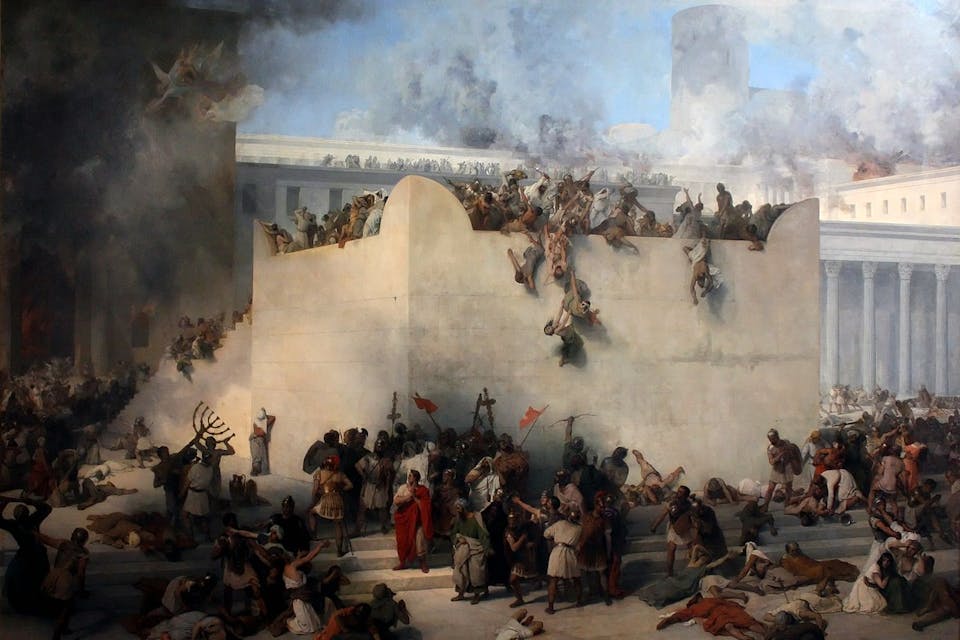
August 9, 2019
The Heretic Whose Teachings the Talmud Preserved and Transmitted
Elisha ben Avuyah became a vehicle for exploring the agonizing conundrums the rabbis were too honest to ignore but too pious to articulate.
One of the most compelling and puzzling figures in the Talmud’s cast of rabbinic characters is Elisha ben Avuyah. Like most sages of that era, Elisha is known to us only through the Talmud and its associated texts. Likely born around the time of the destruction of the Second Temple in the year 70 CE, he lived in the Galilee, where Jewish spiritual and intellectual life reconstituted itself in the aftermath of that great national catastrophe—a crushing event that, along with others similarly dire, is commemorated annually by Jews in the liturgy and 25-hour fast of the Ninth of Av, which this year is marked on Sunday August 11.
The Talmud cites the opinions of Elisha only a handful of times. But the most salient fact of his career is that, at some point, he became a heretic and forsook Jewish practice, earning himself the epithet Aḥer—the Other. And yet the redactors of the Talmud, rather than writing Elisha out of the tradition, as they might easily have done, chose to preserve a record of both his actions and his teachings.
They did so, I would argue, as a means of addressing the theological questions raised by the immense suffering undergone by the Jewish people during his lifetime—a period when all seemed lost, both politically and spiritually. Elisha’s life, which began during the bloody Jewish uprising against the Romans that very soon led to the devastation of Jerusalem and the Temple, would unfold over a period of further persecution that climaxed some 65 years later with the crushing of the Bar Kokhba rebellion (on, the Mishnah asserts, again the Ninth of Av). That latter insurrection—ancient Israel’s final hope of regaining religious and political sovereignty—was suppressed by the emperor Hadrian with even greater ruthlessness than his predecessors had deployed against the great revolt of 67-70 CE.